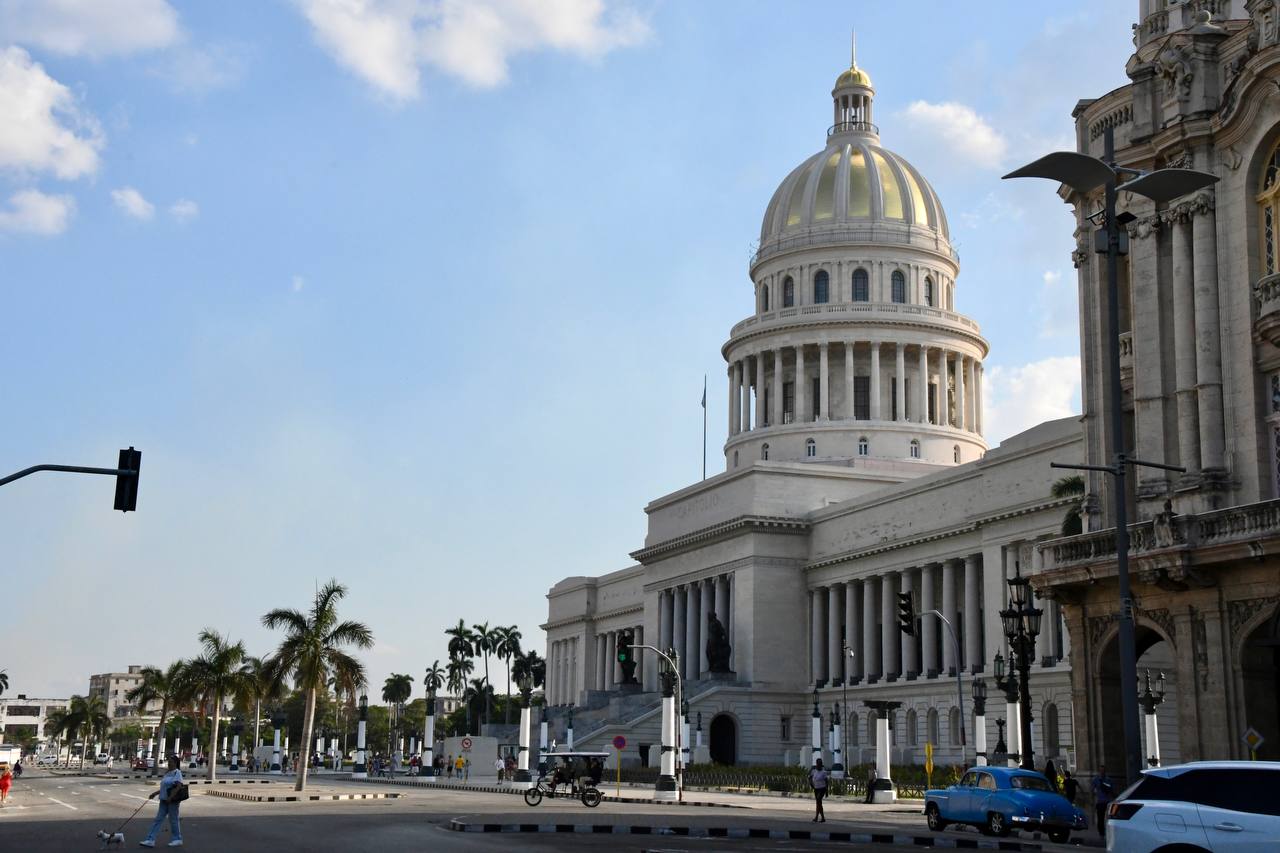Covering nearly 111,000 square kilometers, the Republic of Cuba is the largest island in the Antilles, the most expansive nation in the Caribbean, and the second most populous after Haiti, with a population of 11.2 million. Approximately 2.13 million people reside in the capital city, Havana.
Cuba is an archipelago consisting of the main island, the Isle of Youth (formerly known as the Isle of Pines), and 4,195 smaller keys, islets, and islands. The country is divided into 15 provinces and one special municipality.
Alongside the Dominican Republic, Haiti, Jamaica, and Puerto Rico, Cuba is one of the four Greater Antilles.
Cuba defines itself in its Constitution as a socialist state organized as a Republic with its political party, the Communist Party of Cuba.
The country has a National Assembly, responsible for appointing the president and Head of State, a position currently held by Miguel Díaz-Canel. The unicameral Cuban Parliament, called the People’s Power National Assembly, is the highest body of state authority.
Díaz-Canel was elected in 2018 as President of the Councils of State and Ministers and became President of the Republic of Cuba in 2019, following the approval of the new Constitution. He was re-elected as the nation’s leader on April 19, 2023, during the Constituent Session of the Tenth Legislature of the National Assembly.
Since 2003, Díaz-Canel has been a member of the Political Bureau and is currently also the First Secretary of the Communist Party’s Central Committee.
The Cuban Revolution
José Martí (1853-1895), a philosopher, journalist, and poet born in Havana, is Cuba’s National Hero. As a revolutionary leader, he spearheaded and inspired the uprisings against Spain in pursuit of independence. In 1892, Martí founded the Cuban Revolutionary Party and its publication, Patria.
Although the Republic of Cuba was officially established on May 20, 1902, it merely exchanged Spanish rule for neocolonial dependency on the United States. In 1952, a coup d’état led to the authoritarian regime of Fulgencio Batista, a U.S.-backed ally. Batista fled the country on January 1, 1959, after over two years of combat led by the July 26th Movement, a revolutionary organization headed by Fidel Castro. This revolution remains in power today with strong popular support.
On February 7, 1962, U.S. President John F. Kennedy implemented a unilateral embargo against Cuba through the Foreign Assistance Act of 1961, severing all trade ties with the island and imposing economic isolation to pressure the overthrow of the revolutionary government.
The U.S. economic embargo has significantly impacted Cuba’s economy, limiting its access to international markets and hindering its ability to conduct financial and commercial transactions with other countries. Additionally, it has restricted foreign investment and access to the technology and resources essential for economic development.
In November 2023, for the 31st time, the United Nations voted overwhelmingly to condemn the economic, commercial, and financial blockade imposed on Cuba by the United States, with 187 member countries expressing their support for Cuba.
The Cuban government and people’s steadfast resistance and dignity in the face of aggression from the world’s largest power have made the island a beacon of inspiration for other nations fighting against imperial pressure to undermine their sovereign self-determination processes.
In the largest of the Antilles, 75% of the territory consists of plains, followed by low elevations and mountains, primarily concentrated in the central and eastern regions. These geographical features support diverse agricultural production for both domestic consumption and export, including sugarcane, bananas, cassava, sweet potatoes, tomatoes, mangoes, rice, corn, papayas, beans, potatoes, tobacco, and coffee. Cuba also stands out for its production of pork, beef, milk, and poultry.
Regarding mineral wealth, Cuba ranked as the fifth-largest producer of cobalt and the tenth-largest producer of nickel in 2019.
Cuba is a top tourist destination, drawing visitors with its turquoise beaches, European-influenced architecture, warm hospitality, and vibrant Afro-Caribbean rhythms.
Contributions to ALBA-TCP
Revolutionary leader Fidel Castro (1926-2016), the father of the Cuban Revolution, co-founded the Bolivarian Alliance for the Peoples of Our America-People’s Trade Treaty (ALBA-TCP) alongside Venezuelan leader Hugo Chávez (1954-2013). On December 14, 2004, in Havana, they signed a Joint Declaration and the Agreement for the Application of the Integration Platform.
Among Cuba’s contributions to the regional bloc is the successful implementation of the Cuban literacy method “Yo Sí Puedo” (Yes, I Can), which led to UNESCO’s declaration of Venezuela (2005), Bolivia (2008), and Nicaragua (2009) as territories free from illiteracy. Cuba is recognized globally by the United Nations as a model of educational excellence.
During the most critical phase of the COVID-19 pandemic, Cuba provided its “Soberana 01” vaccine to ALBA countries, and Cuban medical personnel offered solidarity by assisting in patient care and vaccination efforts in some member states.
President Díaz-Canel described ALBA-TCP as the “miracle alliance” that has brought seemingly impossible projects to life and achieved remarkable social progress that has benefited its citizens.
He also emphasized that the organization has provided a long-awaited response to the region’s challenges, stating, “It is the alliance that allows us to face challenges and threats together.”
